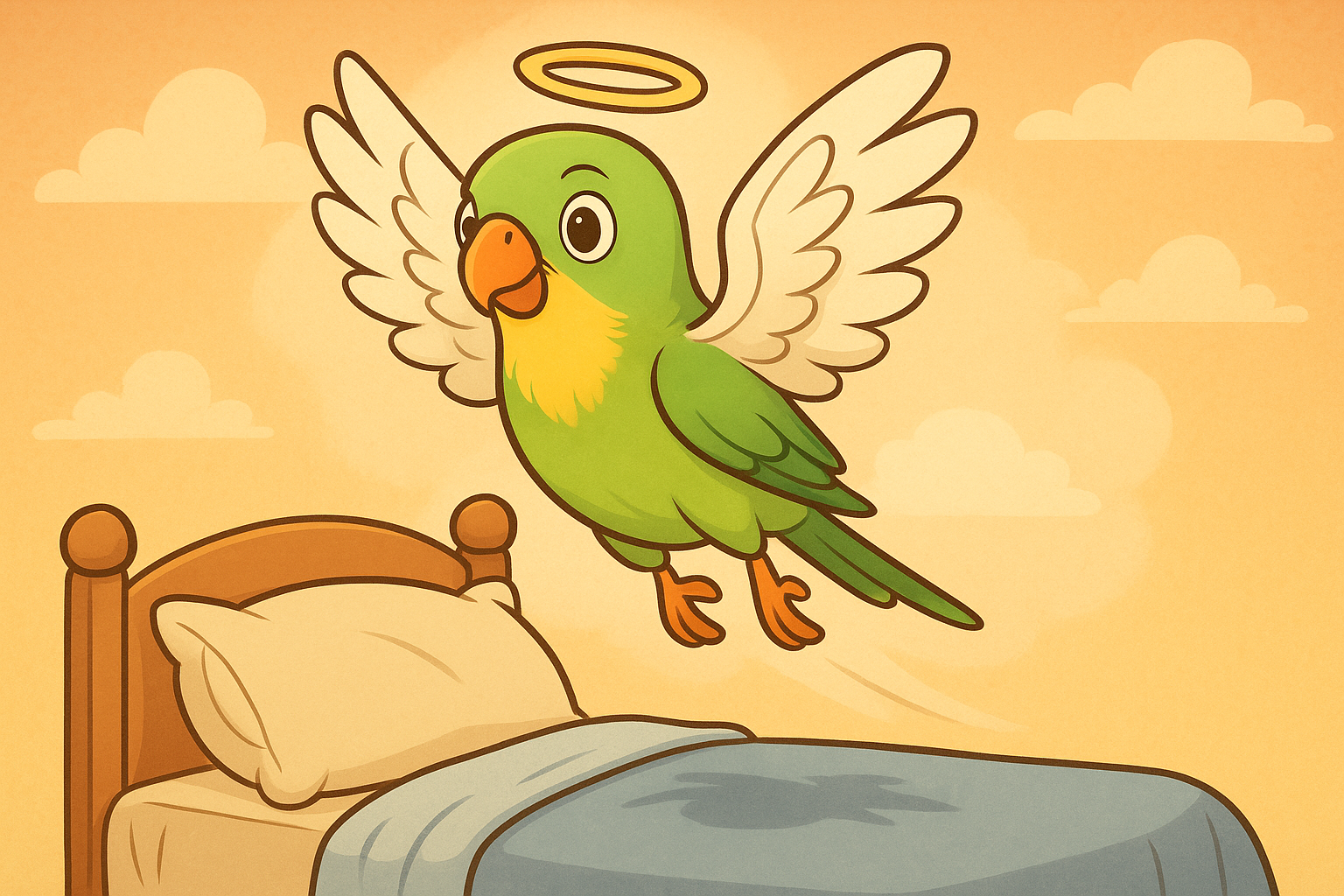
Chochi was my first pet. She came into my life when I was six years old and stayed with me for eight years. My uncle gave her to my mom as a gift. When she arrived, she was aggressive: she couldn’t fly, her wings had been clipped, and the tips of her toes were missing—she had no grip. My uncle said he gave her to my mom because his mother-in-law mistreated her and disliked her singing. He had originally gifted her to her, but when he saw how poorly she was treated, he took her back.
Chochi was fed only sugarcane water and bread every day. I was very young, but I was determined to earn her love. She was distrustful and scared and bit very hard, but somehow she felt safe with my dad. My dad isn’t a big animal lover, so he didn’t give her much attention. My mom, unaware of her needs, fed her poorly. We bought her a large cage, but it was never enough.
As time passed—about three years later—she started trusting me, and we became very attached. I was nine years old then. My mom had just given birth to my younger brother, and for some reason, she began to lose patience with both me and Chochi. Chochi became my emotional support. I started taking care of her myself. One thing that breaks my heart is not having fed her a healthy diet of fruit and seeds. But I did the best I could with what little I had.
Time went by: I taught her to sing melodies I made up, and she learned how to laugh. Despite emotional and financial hardship, we had each other, and that was enough.
Not knowing how to properly care for a bird makes you act carelessly—like traveling with her by bus. Once she nearly suffocated in a tunnel. Another time, at a farm, a cat almost killed her. She even escaped once, despite her clipped wings—though we managed to find her. I feel that birds suffer deeply in captivity, especially in solitude. When I was at school, Chochi would sometimes have stress episodes and pluck her feathers, but all that would stop as soon as she saw me.
She loved sleeping with me. She had her own little house because she slept outside the cage. But that wasn’t safe, because she would seek me out while I slept deeply. One night, I forgot to turn off the TV and fell asleep. During the night, she must have come to sleep with me, and without realizing it, she got tangled in the blankets and, tragically, suffocated. I woke up and tried to give her mouth-to-beak resuscitation, but it was too late. I laid her in her little house, and she looked like an angel asleep. I told my mom that she had just passed away in her sleep. My mom thought it had been a sudden death. I cried for a whole month—I felt devastated. I had hurt the one being I had loved most in the world. It felt unforgivable.
Over time, I came to understand that I was just a child and that it wasn’t my fault—we were both victims of life’s circumstances, which are often sad and unavoidable.
All I know is that she made me a better person and helped shape who I am today: a person who loves animals, especially birds. Now, whenever I find a bird in trouble, I help it—teach it to eat and to fly—but always so that it can be free.
Chochi taught me that birds belong to the sky, and that we must never be thieves of their freedom.
Thank you for the space.
